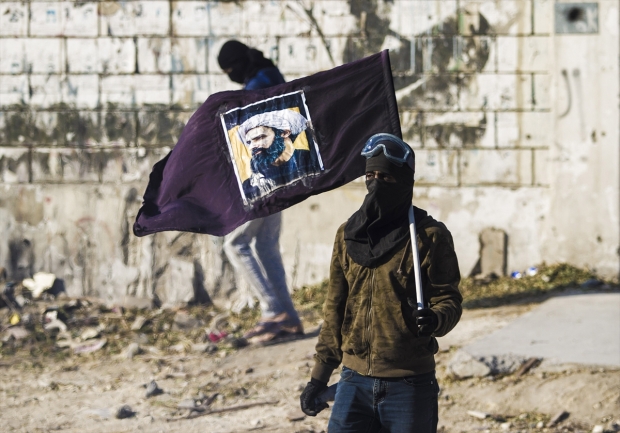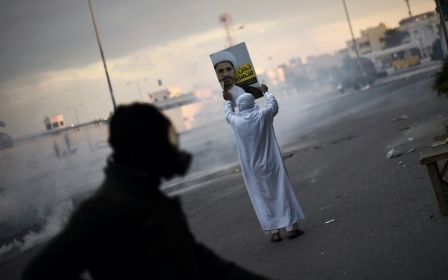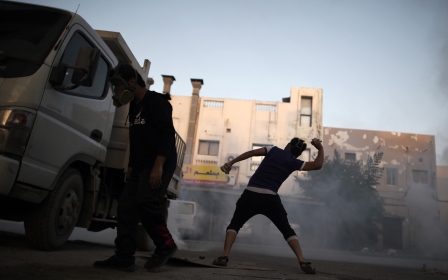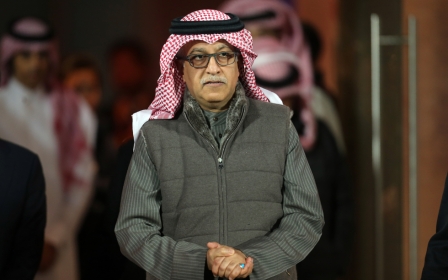Clashes and protests mark fifth anniversary of Bahrain's uprising
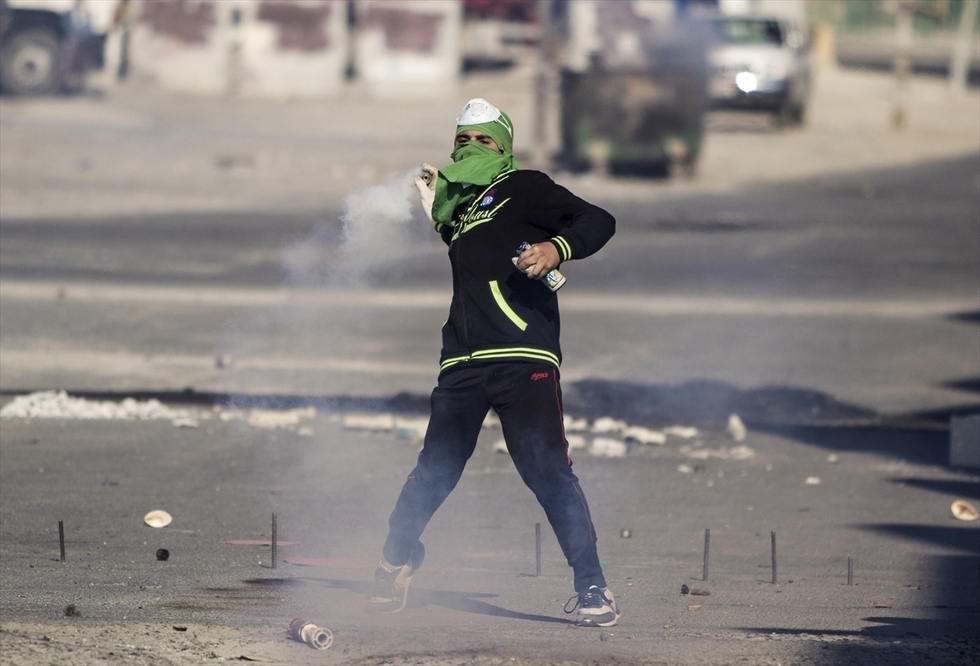
Clashes have taken place and youths have been arrested in Bahrain as protesters commemorated the fifth anniversary of the beginning of pro-democracy protests in the Gulf island state.
An unspecified number of minors were arrested for “riots and acts of sabotage” and for having “disrupted people’s interests,” the state-run Bahrain News Agency said on Sunday.
Clashes broke out in Manama, the Bahraini capital, over the weekend as police fired tear gas and water cannons at mainly masked youths who burned tyres and threw debris at police officers.
Many also carried flags or pictures of martyrs, including depictions of Nimr al-Nimr, the Shia cleric executed by Saudi Arabia in early January.
Sayed Alwadaei, director of advocacy at the Bahrain Institute for Rights and Democracy, described the situation on Sunday as similar to a state of martial law with "violence, arrests and tear gas".
"There has been an appearance of security forces at every entry and exit of each village," he told Middle East Eye.
"There are protests all over the areas in Bahrain."
He added that villages were being "evacuated with tear gas as a method of collective punishment".
Pro-democracy activists posted evidence on Twitter of birdshot being used against protesters.
Though the small Kingdom of Bahrain has not experienced the same level of bloodshed following the 2011 Arab Spring protests as in Egypt, Libya and Syria, over 100 people are thought to have been killed and thousands arrested in the country with a population of only 1.3 million.
The Bahraini government has continuously accused demonstrators of being funded by Iran or of being religious hardliners seeking to overthrow the country's relatively socially liberal society and self-declared tentative steps at reform.
A government statement released by BNA on Saturday hailed the advances made in Bahrain’s political and democratic development in the 15 years since the creation of the National Action Charter, which was advanced by then newly crowned King Hamad ibn Isa al-Khalifah as a means for reform in the country.
“Newly established institutions including the independent Ombudsman – the first of its kind in the region – the National Institute for Human Rights, and the Prisoners’ and Detainees’ Rights Commission have enhanced independent oversight immeasurably, winning international awards in the process,” read the statement.
“The pace of progress cannot be slowed and will not be held back by groupings seeking to reject all attempts at political advance in favour of narrow, short-term interests.”
However, activists have criticised claims of reform in Bahrain, pointing to the failure to implement the recommendations of the Bahrain Independent Commission of Inquiry (BICI) set up by the government in the wake of the initial 2011 protests to investigate claims of abuse by security forces and freedom of speech violations.
In a joint report by the Bahrain Institute for Rights and Democracy (BIRD), Americans for Democracy and Human Rights in Bahrain (AHRDB) and the Bahrain Centre for Human Rights (BCHR), it was claimed that out of the 26 recommendations made by the BICI report, only two were fully implemented.
The report said the government had in other respects “specifically acted to undermine many of these recommendations, undertaking a mass campaign of arbitrary detention to silence dissent, criminalising free speech and assembly in public and private forums, and holding security forces largely unaccountable for the torture and excessive force that continues to this day".
“The government’s claims to have fully implemented the BICI couldn’t be further from the truth,” said Sayed Ahmed, director of advocacy at BIRD.
“Instead, it has actively worked to impede implementation of some of the BICI’s most important reforms, while the human rights situation in Bahrain continues to deteriorate as any sense of urgency the government may have once felt to implement reforms has dissipated.”
Despite complaints of continuing repression, there has been increasing military and financial cooperation between Bahrain and the international community, particularly the UK.
According to the Campaign Against Arms Trade (CAAT), the UK has made deals with Bahrain worth $65mn since February 2011 and has sold it machine guns, assault rifles, anti-armour ammunition and riot vehicles, much of which the organisation said had been used in domestic repression.
Prior to the uprising, over three years of arms deals with Bahrain amounted to less than $9mn.
This comes in addition to the establishment of the UK’s first naval base “east of Suez” in four decades, at the Mina Salman port.
The base is expected to cost about $22mn, and will have upgraded facilities at present used by four British minehunter vessels working in the Gulf.
According to Iain Lindsay, Britain's ambassador to Bahrain, the UK has at any time "1,650 military personnel, Type 45 destroyers, Type 23 frigates, four minesweepers, eight Tornado aircraft and three Merlin helicopters" in the Gulf, which will be supported by the new base.
In the UK, Lord Avebury, a member of the House of Lords who had been among the most vocal critics of the UK's ties with Bahrain, died on Sunday at the age of 87.
Addressing the All-Party Parliamentary Group on Human Rights a year ago, Avebury had said that sooner or later there would be "regime change" in Bahrain.
"The people of Bahrain oppose the UK naval base and see it as a public declaration of the UK's 'green light' for Bahrain to continue its tyranny and repression with impunity," he said.
New MEE newsletter: Jerusalem Dispatch
Sign up to get the latest insights and analysis on Israel-Palestine, alongside Turkey Unpacked and other MEE newsletters
Middle East Eye delivers independent and unrivalled coverage and analysis of the Middle East, North Africa and beyond. To learn more about republishing this content and the associated fees, please fill out this form. More about MEE can be found here.


